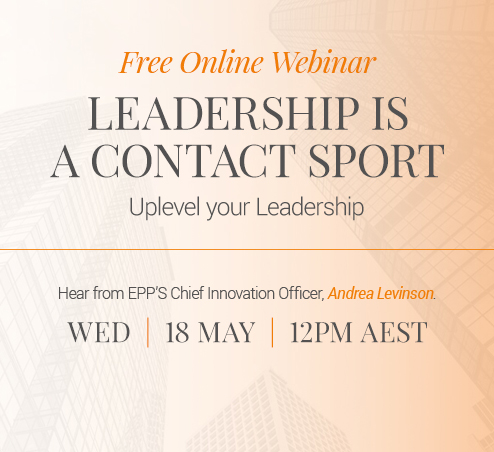How to move the needle from good to great when it comes to the performance of your team
By David Munro, CEO of Executive Performance Partners
We have worked for or alongside thousands of Australia’s top executives, leaders, board members and owners and every one of them has had one common thought which niggles at them.
You know the niggle I refer to.
The niggle which is the first thing that comes to mind at a time of reflection. The thought that pops into your head when woken at 2am and you cannot get back to sleep, or when you have a chance to stop and reflect on what is pulling at the pit of your stomach as you walk out of a management meeting.
It all comes back to: how do I move the needle from good to great when it comes to my own performance and that of my team?
Through applying our combined background in behavioural science and organisation psychology, along with strategic business thinking, we have created five key top performance tips when it comes to addressing this question and they are:
Build a clear scorecard for success
You cannot monitor what you do not measure. It is vital that you have a clear vision for what success looks like and then build a robust set of measures around the key focus areas that will bring that to life. Without a clear vision or plan you are more prone to distractions.
If you can, include both lead AND lag indicators. Look at these regularly and ensure your actions, meetings, priorities, calendar, and team’s tasks are all aligned to these.
“Yes, if…”
Having too much to do is one of the biggest challenges for our clients, no matter the size of team or business. Next time you field a request or invitation to a meeting, practice responding with “yes, if…”
The “if” opens the discussion regarding what needs to be de-prioritised, delegated, removed, or whether your presence at the meeting is really required (check for an agenda and clear outcomes before accepting the invitation).
For example, if being asked to take a meeting with a key client overlaps with a key priority, ask ‘Yes, if…’ This is much easier to use than “Yes, but…” or a straight “no”.
Schedule rest to increase productivity
Many leaders think if they work harder and longer, they will achieve better results. It is simply not true. Our brains need breaks to be at peak performance and there is an inverse relationship between time at the desk and quality or quantity of output after a short period.
Schedule regular breaks in your diary on a daily, weekly, monthly, and quarterly basis so that you are operating at your best. Try working in 50-minute blocks of focused deep work followed by 5 – 10 minutes of movement and mental rest.
Energy is one of your biggest resources
We need to generate energy to be at our best. We recommend creating two lists on either side of a page. On one side list all the things you do that energise you and leaves you feeling more alert and engaged.
On the other side, list all the things that leave you feeling tired, fatigued or generally sap your energy. Wherever possible, maximise the time you spend on the energising activities, and make sure you have at least some of this every day.
For example, if closing deals with clients fires you up, no matter how big the business gets make sure you do not lose that activity. Take steps to minimise the energy drainers. Eliminate, automate, delegate, or outsource wherever possible.
Know the difference between knowing and doing
Nothing is achieved without action. If you are not getting the results you want, take an honest look at where you might be justifying or rationalising why things are not working or why something is not possible. What beliefs or old ways of working need to be left behind?
Most leaders know what they need to do but are not doing it because they have some underlying beliefs or habits holding them back. And lastly, I will leave this thought with you.
It is proven that 95% of our behaviour and performance is driven by non-conscious thinking and automatic responses. The first step in moving the needle from good to great is the requirement to be honest about why things are not changing, what you do or do not know, and call on a coach to offer guidance and hold you accountable.
What we do know to be true is that the more things we try to change all at once, the less effective we are.
If one or two of the key tips listed above resonated with you, we recommend you explore that first. This is fundamental because leadership is what you do, not what you know.
Let’s Talk

